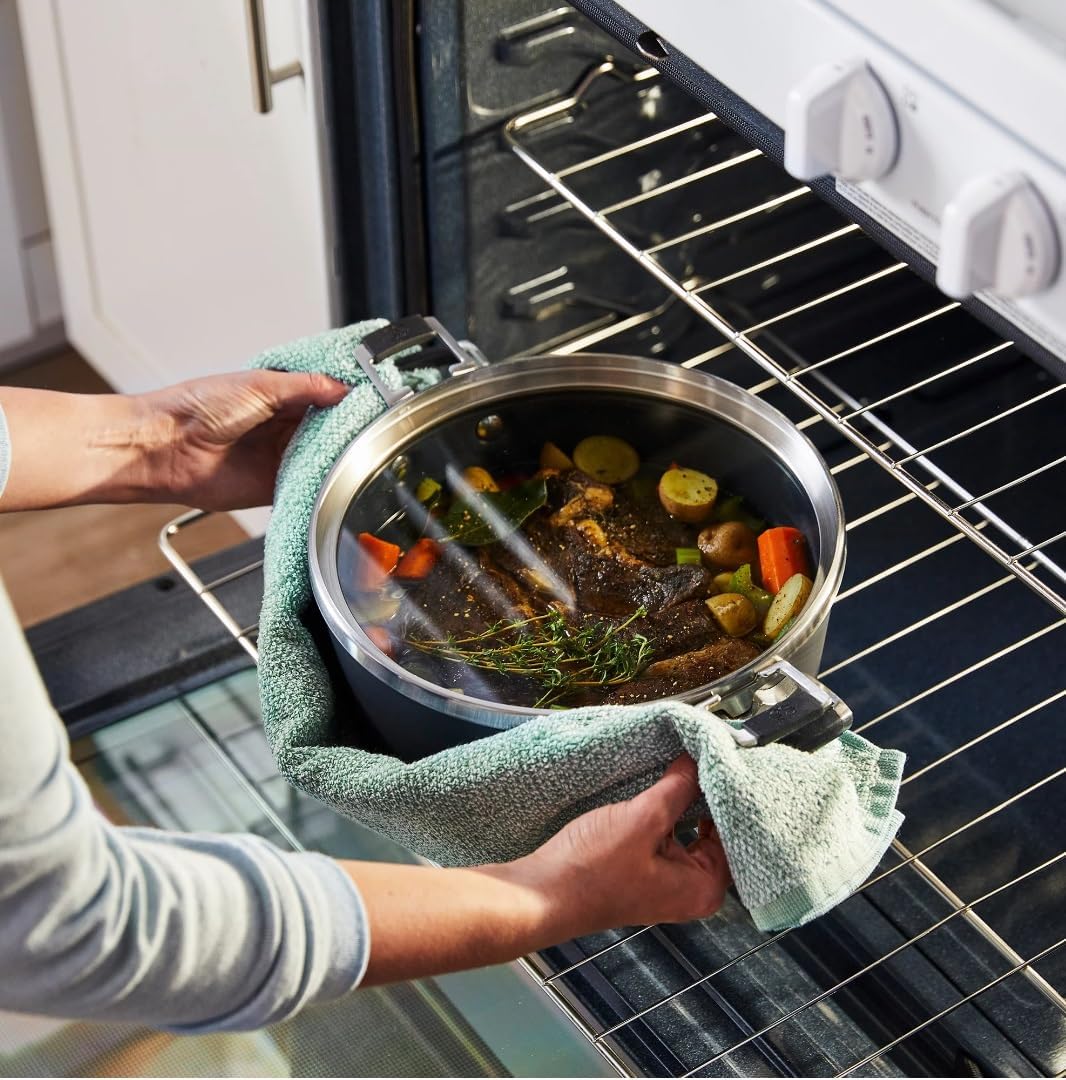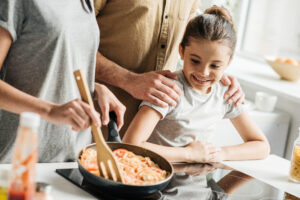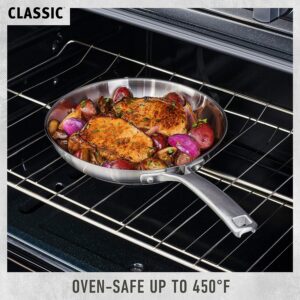If you’re someone who’s conscious about the safety of the cookware you use in your kitchen, then you’ll want to take a closer look at Calphalon cookware. In this article, we’ll explore the various aspects of Calphalon cookware that make it a safe choice for your culinary adventures. From the absence of harmful chemicals like PFOA and PTFE, to its compatibility with different cooking methods and dishwasher use, Calphalon prioritizes your well-being in the kitchen. We’ll also touch upon other non-toxic cookware brands to give you a wider perspective. So, let’s dive into the world of Calphalon cookware and discover why it can be a trusted companion in your cooking journey.
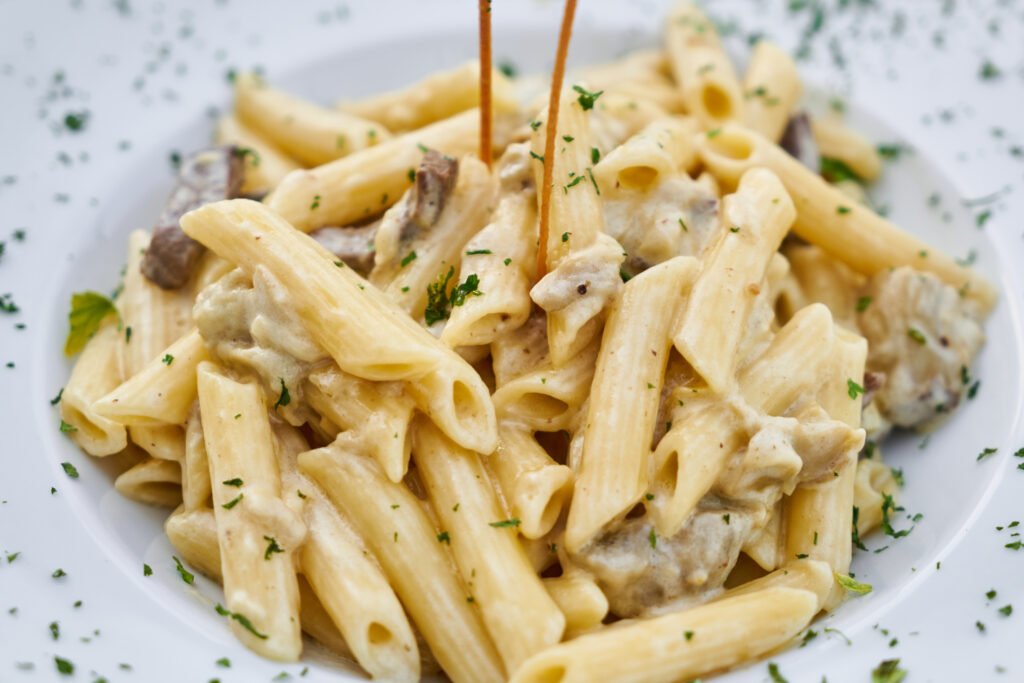
This image is property of images.pexels.com.
The Composition of Calphalon Cookware
Calphalon cookware is a popular choice among home cooks due to its high-quality construction and durability. Many people wonder about the safety of Calphalon cookware and whether it contains any harmful substances. Rest assured, Calphalon cookware is made with your safety in mind, as it does not contain any heavy metals or toxic substances that could pose a risk to your health.
No heavy metals or toxic substances present
One of the primary concerns when it comes to cookware is the presence of heavy metals. Heavy metals, such as lead and cadmium, can leach into your food during the cooking process and have detrimental effects on your health. Calphalon cookware is carefully crafted to ensure that it does not contain any heavy metals, providing you with peace of mind while you prepare your meals.
Made of aluminum and free from harmful chemicals like PFOA and PTFE
Calphalon nonstick cookware is made of aluminum, a lightweight and efficient heat conductor. Aluminum cookware allows for even heat distribution, ensuring that your food is cooked to perfection. Additionally, Calphalon cookware is free from harmful chemicals like PFOA (perfluorooctanoic acid) and PTFE (polytetrafluoroethylene), which are commonly found in nonstick cookware. These chemicals have been linked to health concerns, and their absence in Calphalon cookware makes it a safe choice for you and your family.
Potential Dangers of High-Temperature Cooking
Cooking at high temperatures, especially with nonstick cookware, can have potential dangers associated with it. When subjected to high heat, nonstick coatings can release harmful chemicals into the air, creating a potential health risk for those exposed to them.
Exposure to harmful chemicals
The process of high-temperature cooking can cause nonstick cookware to release volatile organic compounds (VOCs) and other toxic fumes. These fumes can be harmful when inhaled, and prolonged exposure may have adverse effects on your health. It is important to be cautious when cooking at high temperatures and to choose cookware that minimizes the release of these harmful chemicals.
Non-stick cookware and its association with dangerous chemical levels
Nonstick cookware, including some brands that use PFOA and PTFE, has been associated with dangerous chemical levels. PFOA and PTFE are commonly used to create the nonstick surface on cookware, but they can break down and release toxic gases at high temperatures. This can pose a health risk, especially if you frequently cook at high temperatures or use damaged nonstick cookware.
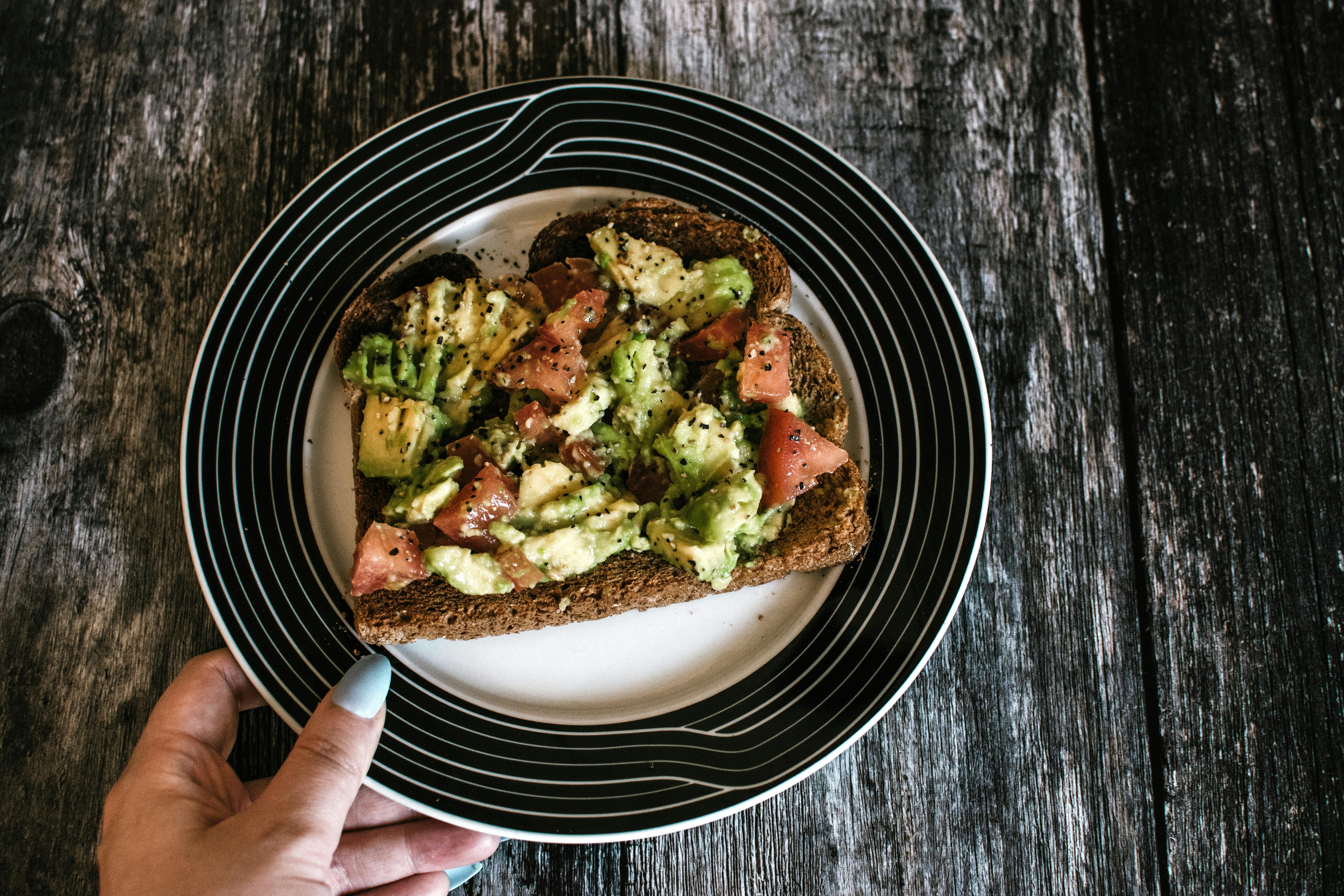
This image is property of images.pexels.com.
The Safety of Other Cookware Options
While Calphalon cookware is known for its safety, it is always good to explore other cookware options to understand the toxicity levels associated with different materials.
Comparing the toxicity of different cookware materials
In terms of toxicity, certain cookware materials are considered safer alternatives to others. Cast iron, stainless steel, glass, and enamel coated cast iron are among the least toxic options available. These materials do not leach harmful chemicals into your food and are generally safe to use for cooking.
Cast iron
Cast iron cookware is known for its durability and excellent heat retention properties. It does not release harmful substances into your food and can even provide a small amount of iron supplementation. However, it is worth noting that cast iron requires proper seasoning and maintenance to prevent rusting.
Stainless steel
Stainless steel cookware is another safe option, as it does not react with food or leach any harmful substances. It is highly durable and resistant to rust and corrosion. Stainless steel cookware can be an excellent addition to your kitchen, providing versatility in cooking various dishes.
Glass
Glass cookware is safe and non-toxic, as it does not contain any metals or chemicals that can leach into your food. It is an excellent choice for baking and roasting, as it distributes heat evenly and is easy to clean. However, glass cookware may not be as versatile as other materials when it comes to stovetop cooking.
Enamel coated cast iron
Enamel coated cast iron cookware combines the benefits of both cast iron and enamel. The enamel coating prevents any direct contact between food and the cast iron, making it a safe option that does not leach any harmful substances. It is also easier to clean compared to traditional cast iron.
Non-Toxic Alternatives to Calphalon Cookware
If you are looking for non-toxic alternatives to Calphalon cookware, there are several brands that prioritize safety and offer high-quality products.
Xtrema
Xtrema is a brand that specializes in ceramic cookware. Their products are free from heavy metals, PFOA, and PTFE. Xtrema cookware is made from a unique, natural ceramic material that can withstand extreme temperatures and provide excellent heat distribution. It is a non-toxic option for those seeking an alternative to traditional nonstick cookware.
GreenPan
GreenPan is another popular brand that offers non-toxic cookware options. Their cookware is coated with a ceramic nonstick surface that is free from PFAS, PFOA, lead, and cadmium. GreenPan’s ceramic nonstick coating provides excellent release properties while ensuring that no harmful substances are released during cooking.
Caraway Cookware
Caraway Cookware is a sustainable and non-toxic option that combines style and functionality. Their cookware is coated with a ceramic nonstick surface that is free from PFOA, PFAS, lead, and cadmium. Caraway Cookware’s products are designed with eco-friendly practices in mind and are a great choice for those looking for a safe and environmentally conscious option.
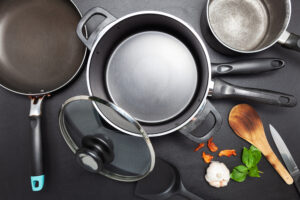
Calphalon Cookware and Scratches
Scratches on cookware can be a cause for concern, as they can potentially release harmful substances into your food. However, Calphalon cookware is safe to use even when scratched, as it does not contain any PTFE, PFOA, lead, cadmium, mercury, or other heavy metals.
Safety of using Calphalon cookware even when scratched
Calphalon cookware is designed with a durable nonstick coating that can withstand regular use and minor scratches. The absence of PTFE and PFOA in the cookware’s composition ensures that even if the surface is scratched, there are no harmful chemicals that can leach into your food. It is still recommended to use non-abrasive utensils and gentle cleaning methods to maintain the longevity of the nonstick coating.
Calphalon’s Discontinuation of PFOA
Concerns about the use of PFOA in cookware have prompted many manufacturers, including Calphalon, to discontinue its use. In 2013, Calphalon ceased the use of PFOA in the production of their cookware. This decision reflects their commitment to providing safer products for their customers.
Ceasing the use of PFOA in 2013
PFOA, a chemical commonly used in the production of nonstick coatings, has been a subject of concern due to its potential risks to human health. Calphalon’s decision to discontinue its use in 2013 demonstrates their dedication to producing cookware that meets stringent safety standards.
Stainless steel cookware safety
Calphalon also offers stainless steel cookware as an alternative to their nonstick options. Stainless steel cookware is generally considered safe for cooking, as it does not leach any harmful substances into your food. Calphalon’s stainless steel cookware is designed to provide efficient heat distribution and optimal cooking performance.
The Link Between Stainless Steel Cookware and Cancer
There have been some reports and studies suggesting a possible link between certain types of stainless steel cookware and cancer, specifically related to the presence of chromium.
Chromium content and its potential association with cancer
Chromium is an essential mineral that occurs naturally in the environment. However, certain types of stainless steel cookware may contain trace amounts of chromium, which can potentially be released into food during cooking. While the levels are typically minimal and within safe limits, some research suggests that high levels of chromium exposure over time may be associated with an increased risk of certain types of cancer.
Reports on the safety of stainless steel cookware
It is worth noting that the majority of studies on the safety of stainless steel cookware have found no direct link between its use and cancer. The potential health risks associated with chromium in stainless steel cookware are still being researched, and the overall consensus indicates that the risk is minimal. Proper maintenance and care, such as avoiding cooking highly acidic foods for prolonged periods, can further minimize any potential exposure.
Oven and Dishwasher Safety of Calphalon Cookware
Calphalon cookware is designed to be versatile and convenient, allowing you to use it in both the oven and the dishwasher. However, it is essential to consider the effects of high temperatures and harsh dishwasher cycles on the cookware’s coating.
Oven and dishwasher suitability
Calphalon cookware is oven-safe, meaning you can safely use it for baking, roasting, and broiling. The cookware’s construction and materials allow for even heat distribution, ensuring that your dishes are cooked to perfection. Additionally, Calphalon cookware is generally dishwasher-safe, making cleanup a breeze.
Effects of high temperatures and harsh dishwasher cycles on the cookware’s coating
Although Calphalon cookware is designed to withstand high temperatures, prolonged exposure to extreme heat can affect the integrity of the nonstick coating. It is important to follow the manufacturer’s recommendations regarding temperature limits and cooking times to ensure the longevity of the cookware. Similarly, harsh dishwasher cycles, which involve high heat and strong detergents, can speed up the wearing off of the nonstick coating. To prolong the life of your Calphalon cookware, handwashing with mild soap and gentle scrubbing is recommended.
Calphalon Cookware and Cancer Risk
Cancer is a prevalent concern when it comes to cookware safety. However, Calphalon cookware does not use Teflon coating, and there is no known association between Calphalon cookware and cancer.
The absence of Teflon coating in Calphalon products
Teflon, a brand name for PTFE, has been associated with health concerns and an increased risk of certain health conditions, including cancer. However, Calphalon cookware does not use Teflon coating in its manufacturing process, ensuring that there are no potential risks associated with this nonstick material.
No association between Calphalon cookware and cancer
Calphalon cookware has undergone rigorous testing and meets stringent safety standards. There is no evidence to suggest that using Calphalon cookware increases the risk of cancer. By following proper usage and maintenance guidelines, you can confidently use Calphalon cookware in your kitchen without worrying about potential health risks.
Conclusion
Choosing the right cookware is crucial for maintaining a healthy and safe kitchen environment. Calphalon cookware is a reliable and trusted brand that prioritizes your well-being by creating products that are free from harmful substances. Its composition, including aluminum construction and the absence of heavy metals, makes it a safe choice for everyday cooking.
While Calphalon cookware is a great option, there are other non-toxic alternatives available, including Xtrema, GreenPan, and Caraway Cookware. These brands offer cookware that is free from toxic chemicals while delivering excellent cooking performance.
It is essential to consider the potential dangers of high-temperature cooking and the toxicity levels of different cookware materials before making a decision. Cast iron, stainless steel, glass, and enamel-coated cast iron are among the safest options available, offering both versatility and peace of mind.
When it comes to Calphalon cookware, scratches do not pose a significant risk, as the absence of PTFE, PFOA, and other heavy metals ensures the safety of your food. Calphalon’s discontinuation of PFOA and the safety of its stainless steel cookware further reinforce its commitment to providing safe and reliable products.
Overall, Calphalon cookware is a safe choice for your kitchen, offering both convenience and peace of mind. By considering the appropriate usage guidelines and following proper care and maintenance practices, you can enjoy the benefits of Calphalon cookware while prioritizing your health and safety.


